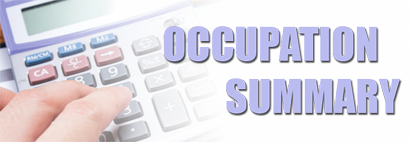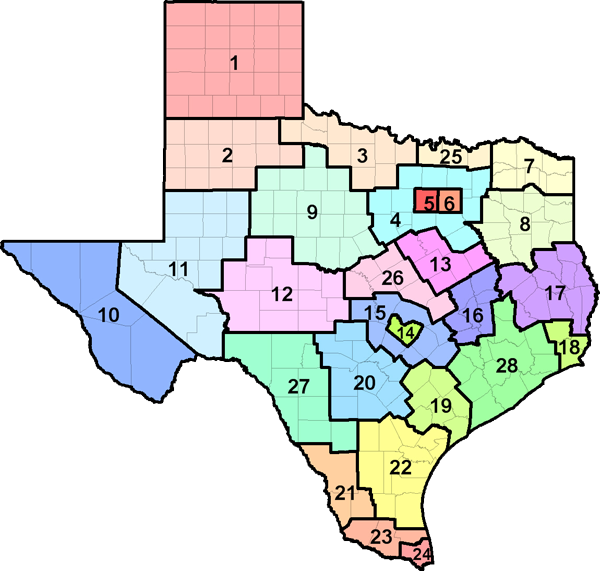The U.S. Department of Labor has developed an automated occupational information database, O*NET, that identifies and describes work content, work skills, and training requirements for all jobs across the country in all sectors of the economy. Much of the occupational information contained in this report is derived directly from the O*NET database, and supplemented with information from the Bureau of Labor Statistics, Census Bureau, and Labor Market and Career Information.

| Industry | % of Management Analysts employed | Annual Growth Rate |
|---|---|---|
| Management, scientific, and technical consulting services | 19.6 | 2.05 |
| Insurance carriers | 5.3 | 0.93 |
| Computer systems design and related services | 5.2 | 1.89 |
| Accounting, tax preparation, bookkeeping, and payroll services | 3.1 | 0.56 |
| 2022 Statewide average hourly wage | $48.92 |
| 2022 National average hourly wage | $50.32 |
| 2020 National employment | 907,600 |
| 2020 Texas employment | 47,864 |
| Texas projected employment by 2030 | 59,856 |
| Texas projected annual employment and Turnover openings through 2030 | 6,030 |

| Region | Employment | Projected Employment 2030 | Projected Annual Openings 2030 |
Annual Growth Rate |
Average Income |
|---|---|---|---|---|---|
| Texas (all regions) | 47,864 | 59,856 | 6,030 | 2.26% | $101,763.00 |
| Top 10 Relevant Knowledge Areas | Relevant Importance Levels |
|---|---|
| English Language Knowledge of the structure and content of the English language including the meaning and spelling of words, rules of composition, and grammar. |
|
| Administration and Management Knowledge of business and management principles involved in strategic planning, resource allocation, human resources modeling, leadership technique, production methods, and coordination of people and resources. |
|
| Customer and Personal Service Knowledge of principles and processes for providing customer and personal services. This includes customer needs assessment, meeting quality standards for services, and evaluation of customer satisfaction. |
|
| Mathematics Knowledge of arithmetic, algebra, geometry, calculus, statistics, and their applications. |
|
| Education and Training Knowledge of principles and methods for curriculum and training design, teaching and instruction for individuals and groups, and the measurement of training effects. |
|
| Computers and Electronics Knowledge of circuit boards, processors, chips, electronic equipment, and computer hardware and software, including applications and programming. |
|
| Economics and Accounting Knowledge of economic and accounting principles and practices, the financial markets, banking, and the analysis and reporting of financial data. |
|
| Personnel and Human Resources Knowledge of principles and procedures for personnel recruitment, selection, training, compensation and benefits, labor relations and negotiation, and personnel information systems. |
|
| Law and Government Knowledge of laws, legal codes, court procedures, precedents, government regulations, executive orders, agency rules, and the democratic political process. |
|
| Sales and Marketing Knowledge of principles and methods for showing, promoting, and selling products or services. This includes marketing strategy and tactics, product demonstration, sales techniques, and sales control systems. |
| Top 10 Relevant Skill Areas | Relevant Importance Levels |
|---|---|
| Reading Comprehension Understanding written sentences and paragraphs in work-related documents. |
|
| Active Listening Giving full attention to what other people are saying, taking time to understand the points being made, asking questions as appropriate, and not interrupting at inappropriate times. |
|
| Critical Thinking Using logic and reasoning to identify the strengths and weaknesses of alternative solutions, conclusions, or approaches to problems. |
|
| Complex Problem Solving Identifying complex problems and reviewing related information to develop and evaluate options and implement solutions. |
|
| Writing Communicating effectively in writing as appropriate for the needs of the audience. |
|
| Speaking Talking to others to convey information effectively. |
|
| Judgment and Decision Making Considering the relative costs and benefits of potential actions to choose the most appropriate one. |
|
| Systems Evaluation Identifying measures or indicators of system performance and the actions needed to improve or correct performance, relative to the goals of the system. |
|
| Monitoring Monitoring/Assessing performance of yourself, other individuals, or organizations to make improvements or take corrective action. |
|
| Social Perceptiveness Being aware of others' reactions and understanding why they react as they do. |
| Top 10 Relevant Abilities | Relevant Importance Levels |
|---|---|
| Problem Sensitivity The ability to tell when something is wrong or is likely to go wrong. It does not involve solving the problem, only recognizing that there is a problem. |
|
| Oral Comprehension The ability to listen to and understand information and ideas presented through spoken words and sentences. |
|
| Written Comprehension The ability to read and understand information and ideas presented in writing. |
|
| Oral Expression The ability to communicate information and ideas in speaking so others will understand. |
|
| Written Expression The ability to communicate information and ideas in writing so others will understand. |
|
| Deductive Reasoning The ability to apply general rules to specific problems to produce answers that make sense. |
|
| Inductive Reasoning The ability to combine pieces of information to form general rules or conclusions (includes finding a relationship among seemingly unrelated events). |
|
| Speech Recognition The ability to identify and understand the speech of another person. |
|
| Speech Clarity The ability to speak clearly so others can understand you. |
|
| Fluency of Ideas The ability to come up with a number of ideas about a topic (the number of ideas is important, not their quality, correctness, or creativity). |